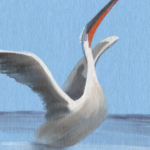 Listen to Teresa’s guided meditation on vitality (16 min.)
Listen to Teresa’s guided meditation on vitality (16 min.)
Dr. Ellen Langer, a renowned mindfulness researcher and experimental social psychologist at Harvard University and the author of the groundbreaking book Mindfulness, defines mindfulness as the simple process of actively noticing new things. The beauty of mindfulness is that every moment we spend being truly present is new: this moment, this very moment, has never happened before and will never happen again. We’re not lost in the past; we’re not projecting into the future. And this sense of newness brings renewal, even doing tasks we previously considered mundane.
You can read more about Dr. Langer and her innovative research here.
The Irish poet David Whyte has brought poetry and insight to the role of work in our lives in ways that have revitalized work culture around the world. His books include Crossing the Unknown Sea: Work as a Pilgrimage of Identity and The Heart Aroused: Poetry and the Preservation of the Soul in Corporate America.
Here, he writes about a wise friend who brought him insight into the cure for exhaustion:
I felt as if I didn’t have an ounce of energy left to do the work I had been doing…. I could feel how utterly exhausted I was in body and spirit, and how much I needed to talk with someone, anyone, but also how marvelous is was [that I was about to be visited by the person who ] … had exactly the kind of perspectives I needed at that moment.
I could see Brother David already in my mind’s eye….[He] was my kind of monk; no stranger to silence but equally at home in the robust world of work, it’s words, and its meaning… You might be impressed by his extraordinary capacity for compassion, but it did not mean he would let any unthinking assertion pass him by without a challenge or clarification…
[After he arrived and we sat across the table from each other with glasses of wine,] I looked up at Brother David, the nearest thing I had to a truly wise person in my life, and found myself blurting,
“Brother David?”
I uttered it in such an old, petitionary, Catholic way that I almost thought he was going to say, “yes, my son? But he did not; he turned his face toward me, following the spontaneous note of desperate sincerity, and simply waited.
“Tell me about exhaustion,” I said
He looked at me with an acute, searching, compassionate ferocity for the briefest of moments, as if trying to sum up the entirety of the situation and without missing a beat, as if he had been waiting all along to say a life-changing thing to me. He said, in the form both of a question and an assertion:
“You know that the antidote to exhaustion is not necessarily rest?”
“The antidote to exhaustion is not necessarily rest,” I repeated woodenly, as if I might exhaust myself completely before I reached the end of the sentence, “what is it, then?”
The antidote to exhaustion is wholeheartedness.”
From Crossing the Unknown Sea by David Whyte, Riverhead Books, 2001, pp. 129-132.
Artwork, “Dalmatian Pelican” ©2021 Teresa Jordan
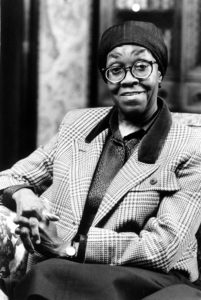 Still Do I Keep My Look, My Identity
Still Do I Keep My Look, My Identity
 When we dissociate from our bodies, we dissociate from life itself. As beloved mindfulness teacher Tara Brach has noted, “The most profound and full presence can only be experienced if we’re awake right here in this body – with a quality of sacred presence that comes when, without any resistance or grasping, we really plant ourselves in the universe, in this body, in this being right here.”
When we dissociate from our bodies, we dissociate from life itself. As beloved mindfulness teacher Tara Brach has noted, “The most profound and full presence can only be experienced if we’re awake right here in this body – with a quality of sacred presence that comes when, without any resistance or grasping, we really plant ourselves in the universe, in this body, in this being right here.”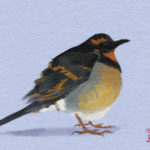 This Week’s Mid-week Pause: Studies tell us that an ever-increasing percentage of people all over the world feel at odds with their bodies. The numbers are greater for women than for men, and for girls than for boys, but they are growing across all categories of gender, ethnicity, age and class as Big Beauty, Big Pharma, and the ubiquitous presence of social media conspire to tell us that we don’t measure up.
This Week’s Mid-week Pause: Studies tell us that an ever-increasing percentage of people all over the world feel at odds with their bodies. The numbers are greater for women than for men, and for girls than for boys, but they are growing across all categories of gender, ethnicity, age and class as Big Beauty, Big Pharma, and the ubiquitous presence of social media conspire to tell us that we don’t measure up. Listen to Teresa’s
Listen to Teresa’s 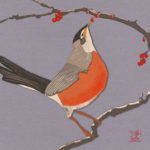 Please join me tomorrow, Wednesday, February 17, for a guided mediation at 1 pm Mountain Time. This week’s topic is vitality and revitalization … something most of us can use! The opening remarks and guided meditation will last 25-30 minutes and then you are invited to stay on for a brief “breakout” exercise, which is a great way to build community and also explore ways to carry mindfulness into the rest of your life.
Please join me tomorrow, Wednesday, February 17, for a guided mediation at 1 pm Mountain Time. This week’s topic is vitality and revitalization … something most of us can use! The opening remarks and guided meditation will last 25-30 minutes and then you are invited to stay on for a brief “breakout” exercise, which is a great way to build community and also explore ways to carry mindfulness into the rest of your life.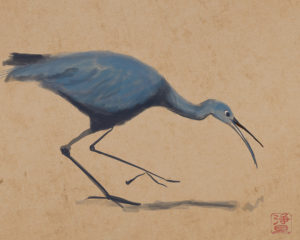 Listen to Teresa’s
Listen to Teresa’s  Please join me for a weekly mid-day pause, starting this coming Wednesday, February 10, at 1 pm Mountain Time. Each session will be approximately 30 minutes and will include opening remarks, a 15-20 minute guided meditation, and the option afterwards for a brief small-group breakout to support ways you can incorporate mindfulness practice in your life.
Please join me for a weekly mid-day pause, starting this coming Wednesday, February 10, at 1 pm Mountain Time. Each session will be approximately 30 minutes and will include opening remarks, a 15-20 minute guided meditation, and the option afterwards for a brief small-group breakout to support ways you can incorporate mindfulness practice in your life.